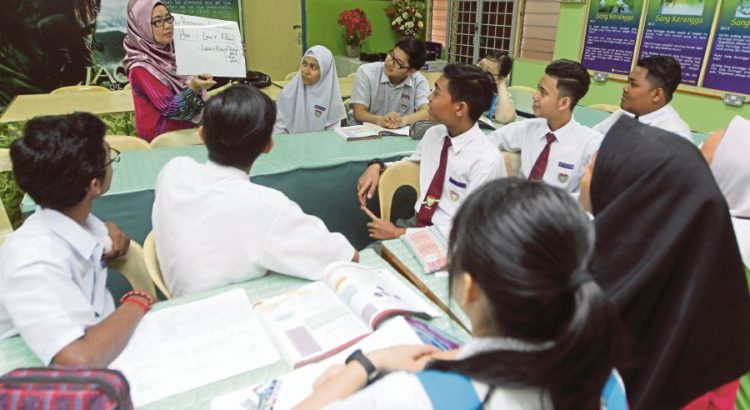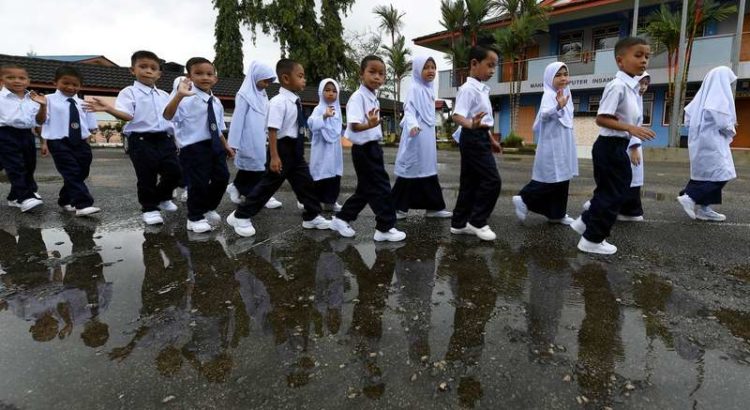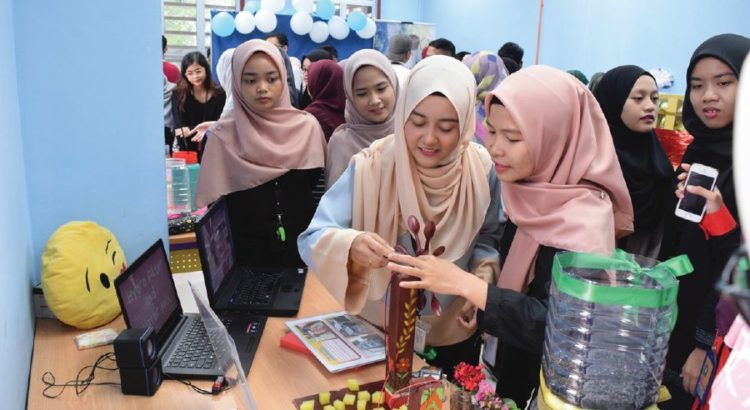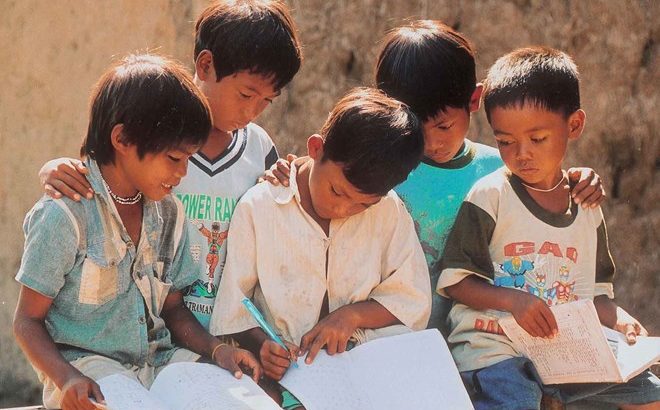By Hazlina Aziz.
With the students heading back to school yesterday for the new school year, let me lay out two challenges confronting education today that I think will dominate the year if we do not focus on certain areas.
The first is the lack of acceptance by students and parents of their responsibilities, and the subsequent undermining of discipline.
Nowadays, far too many parents are passive, protesting that they cannot handle their own children. Others actively undermine the disciplinary process, questioning the right of teachers or schools to impose discipline or to insist that all students be governed by the same set of rules.
We don’t talk very much any more about whether, for instance, parents are pushing their children to do their homework and school projects or respect their teachers.
The recent case of Cikgu Azizan brought up many discussions among Netizens on issues leading to the difficulties in educating youths today. The lack of student-parent accountability can be frustrating in regard to student discipline and striving to ensure that students accept responsibility for their behaviour and actions.
Responsibility for exam results, and for student success and behaviour cannot rest on the overloaded backs of teachers alone. Education would function best as a stool strongly supported by three legs — teachers, students and parents. Instead, it far too often stands on only one leg, that of the teachers.
Part of a teacher’s job is finding the way to open a student’s heart and mind. By the same token, though, the job of parents and guardians is to send to school children who are responsible, respectful and ready to learn. While compulsory attendance regulation can make children show up in schools, it is still hard to teach those who do not want to learn.
The days of parents adopting a hands-off approach to their child’s education and that it is the teacher’s job must come to an end soon. Parents, and even more importantly, students themselves, must be held accountable.
The other challenge is a generation addicted to smartphones or other mobile devices which leads to inability to focus and engage in the actual tasks at hand. Along with the Internet and its infinite distractions, there are a lot more products and platforms competing for attention today than there were 30 years ago.
One example is how to get students who are used to a different source of distraction every few seconds to focus, for instance, on reading a chapter from the textbook, analysing a poem, or writing a coherent essay. It is not easy and it will grow more difficult for teachers to get their attention during lessons.
Some students can “switch” attention between the phone as an entertainment device and as a learning tool; for others, the phone’s academic potential is routinely ignored.
Boys in their teens are addicted to video games and can play incessantly if given the chance. Girls of the same age, on the other hand, are addicted to social media wanting every moment for Snapchatting or Instagramming.
The problem as a result of this addiction runs deeper and is far more difficult to solve. We might think that students can handle the multitasking that using phones and devices for studies would require. For others, they are almost always a distraction. Even the visible presence of a phone pulls students — and many adults — away from their task at hand.
Yes, smartphones and other devices can be used in learning activities. They can provide instant access to information from a myriad sources and for a myriad reasons.
Although technology and the wealth of information that they can provide has the potential to shrink achievement gaps, the opposite can also take place within the classroom.
The Education Ministry’s plan to allow students to bring mobile devices to help in the learning process should be considered.
We must be selective on technology use in school not just because it is available, as it should be a means to a meaningful end, not an end in itself as teachers work to enrich the student experience.
In the New Year, the Malaysian Education Blueprint gets into its fifth year of implementation in transforming our education system.
The master plan needs a review along the way to add value and rectify any shortcomings to maximise its target by 2025. These two issues mentioned can have a negative impact on teachers and students if we do not address them properly.
Teaching, which is one of the very best jobs in the world, will remain one of the hardest jobs today. I wish a happy and successful new school year for all those who returned to the classroom yesterday.
Source of the article https://www.nst.com.my/opinion/columnists/2018/01/320906/two-challenges-confronting-education














 Users Today : 103
Users Today : 103 Total Users : 35460009
Total Users : 35460009 Views Today : 148
Views Today : 148 Total views : 3418613
Total views : 3418613